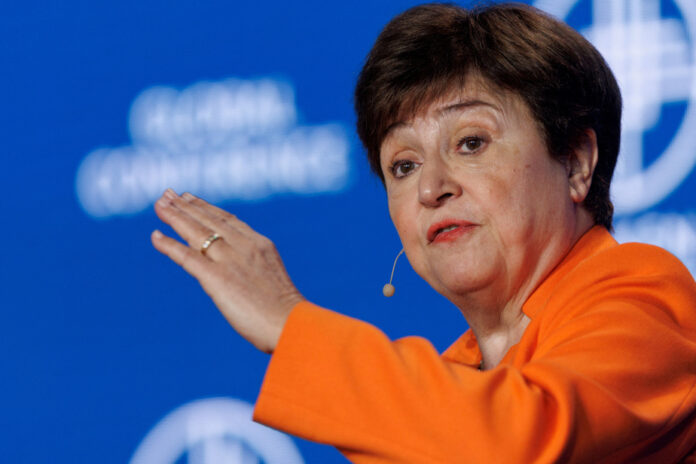(Doha) The world economy, already in the grip of “high uncertainty”, could have “did not have” the tense negotiations on the debt ceiling in the United States, said on Wednesday the managing director of the International Monetary Fund (IMF ) Kristalina Georgiava.
In Washington, Democrats and Republicans are struggling to agree on a budget to avoid an unprecedented default on the June 1 deadline, raising fears among economists of a financial panic and a massive recession, with a contagion effect on the scale world.
“The global economy, already facing such great uncertainty, could have done without” endless negotiations in Washington, said Kristalina Georgieva, at a forum in Doha, Qatar.
The managing director of the IMF, however, said she was convinced that an agreement would make it possible to avoid a bankruptcy of the first world economy.
The United States has always “struggled with this purely theoretical flaw”, but a solution is always found “at the last minute”, she noted.
“We must always remain aware that the risk is there,” she nevertheless warned.
Stephen Schwarzman, the boss of Blackstone, one of the largest investment firms in the world, also refused to believe in the prospect of a default in the United States while underlining the “political impasse”.
“The whole world is watching what’s going on,” added the magnate close to the Republicans.
The United States is not immune to “miscalculation by those involved in the negotiations”, he pointed out, but “it would hurt American voters and put tremendous pressure that things are resolved in a few days”.
To remove the risk of bankruptcy, Congress – the Senate held by the Democrats and the House with a Republican majority – must vote to raise the maximum authorized public debt ceiling.
To give the green light, the Republican camp demands to cut public spending.
But President Joe Biden, who is campaigning for re-election on the theme of social justice, opposes it.
Democrats favor reducing the deficit in a country with more than $31 trillion in debt, but would rather tax the wealthiest and big business more, without touching welfare benefits or huge investment projects.
A default could have catastrophic consequences for the US economy, economists say, and cause a crisis that would inevitably spread to Europe and the rest of the world.















